Daniel Garber talks with Drew Hayden Taylor about Going Native
 Hi, this is Daniel Garber at the Movies for culturalmining.com and CIUT 89.5 FM.
Hi, this is Daniel Garber at the Movies for culturalmining.com and CIUT 89.5 FM.
What do vintage wine, comic book superheroes, bison burgers, rap music, survival techniques, sea monsters and the Calgary stampede all have in common? Nothing at first glance. But dig a bit deeper and you’ll find they’re all tied to — and parts of — contemporary indigenous life. A culture that’s being reclaimed, rejigged and rebooted even as we speak… while the rest of the world is just starting to “go native”.
Going Native is also the name of a new, 13-part TV series, that covers a wide range of topics, from gourmet food to pop culture, storytelling to spirituality. It’s slick, funny, fast-moving and always surprising. The series is produced, co-written and hosted by Drew Hayden Taylor, the widely-known indigenous novelist, playwright, columnist and humorist.
covers a wide range of topics, from gourmet food to pop culture, storytelling to spirituality. It’s slick, funny, fast-moving and always surprising. The series is produced, co-written and hosted by Drew Hayden Taylor, the widely-known indigenous novelist, playwright, columnist and humorist.
I spoke to Drew Hayden Taylor via Zoom.
Going Native is having its world premier on APTN on May 8th.
Unsung Heroes at Hot Docs 21! Films reviewed: The Face of Anonymous, It Is Not Over Yet, Mary Two-Axe Earley: I Am Indian Again
Hi, this is Daniel Garber at the Movies for culturalmining.com and CIUT 89.5 FM.
The 28th edition of Hot Docs — Canada’s International Documentary Festival — has begun, with features and shorts streaming from today until May 9th. It’s online-only this year, but with many live events, Q&As and workshops. As every year, a selection of tickets are offered free to students and Students and Seniors (over 60) with new titles released each day.
I’ve started to watch some the films but first let me tell you about a few that I haven’t seen yet but look good. Wuhan Wuhan, by Toronto’s own Yung Chang, goes to the city where the current pandemic was first discovered. Misha and the Wolves tells the extraordinary story of a young Belgian Holocaust survivor who sought refuge by living among the wolves… but was her story true? Sex, Revolution and Islam looks at the first female imams in Europe and how they’re radically changing their religion’s outlook. And We are as Gods looks at an environmental iconoclast wants to de-extinct animals using DNA… an eco-hero or shades of Jurassic Park? These are just a few of the docs playing at HotDocs.
This week I’m looking at three more docs about unsung heroes. There are Danish nurses changing how we deal with dementia, a hacktivist changing world events, and a Mohawk activist who changed history.
Dir: Gary Lang
It’s the 2000s. The US has invaded Iraq, killing hundreds of thousands and displacing millions, supposedly looking for “weapons of mass destruction” and someone to blame for 9/11, when a video started circulating. It is secretly released by Chelsea Manning and published by Julian Assange at Wikileaks, and it shows footage of a heinous war crime, the gunning down of unarmed journalists in Baghdad by the US military. This leads to a crackdown on the whistleblowers, with corporations like PayPal, Visa and MasterCard trying to choke Wikileaks.
This is when a new group appears in the mainstream media. It’s called Anonymous (previously known for fighting Scientology), and consists of hundreds or thousands of anonymous hackers working in tandem. Together they DDOS (directed denial of service) the corporations and government agencies blocking the truth. And they release scary-looking announcement videos. Their members wear Guy Fawkes masks in public to conceal their faces, and one of their public voices is an unknown person called CommanderX. Later the US government starts a nationwide attack on Anonymous members, arresting many people across the country.
But not Commander X.
The Face of Anonymous gives you this background, but then reveals some things you never knew about. Commander X is living on the streets of Toronto in the 2010s having snuck across the border. He continues to be an active presence, even while he’s sleeping outdoors in a park using his laptop as a pillow. Christopher Doyon. You know why they wore Guy Fawkes masks? Because after V is for Vendetta the masks were sitting on warehouse shelves across the continent at discount prices — so everyone in Anonymous could easily get a hold of one.
This fascinating film follows Commander X, how he travelled from Canada to. Mexico, and where he is now. It reveals he also played a role in the start of the Arab Spring in Tunisia. It also interviews other prominent former Anonymous activists. For me, this is especially interesting because I was talking about We Are Legion: The Story of the Hacktivists a doc that played at Hot Docs a decade ago, without knowing Commander X was here in Toronto at the same time viewing the same movie.
Dir: Louise Detlefsen
It’s a nursing home in rural Denmark. The residents come from a wide variety of backgrounds; one woman is a former social worker and sexologist. Another ran one of the country’s biggest pharmacies. But they share a common trait: they’re all suffering from dementia. What’s unusual about this place, though is its approach. It’s an open-style residence, located near a forest. They keep chickens I’m the yard, and they’re encouraged to take walks and hug trees. People sing songs, tell jokes, and are always treated with respect. One thing not present is medications. In Denmark the average patient is on 10 different meds. Here they react with horror when they see the medical record of a heavily-drugged newcomer, whom they determine doesn’t have Alzheimers at all. They all share meals and celebrations to mark the death of any residentn(when the flag outside flies at half mast, their birthdays, and other major events.
It Is Not Over Yet is a slow-paced but tender look at the final years of some elderly Danes. It’s told in a “fly on the wall” manner — so we get to see the nurses and attendants discussing their cases, their interaction with the residents, and among the elderly themselves; their friendships, loves, and quirks. It’s not so much about dementia or dying as it is about living life to the fullest.
 Mary Two-Axe Earley: I Am Indian Again
Mary Two-Axe Earley: I Am Indian Again
Dir: Courtney Montour
It’s the 1960s. Mary Two-Axe Earley is a Mohawk woman from Kahnawa:ke who marries a non-indigenous man. She is immediately told that she is no longer an Indian and must leave her home and community. (This rule is part of the Indian Act). She is shocked and flabbergasted but refuses to follow orders. I am Mohawk, I am an Indian, despite what they say, and you can’t take that away from me. She starts up a group, Indian Rights for Indian Women, and takes it to Ottawa to testify before Parliament. The hypocrisy of it all: can you imagine a brother and sister, one considered indigenous, the other not? A woman marrying a non-native man, even if later divorced, lost her Indian status for life. Even after death, she can’t be buried in her ancestral land. (In contrast, a man who marries a non-native keeps his status).
Other women’s groups join in solidarity. Mary Two-Axe struggles for many years until she triumphs, changing the law. And she — and 100,000 others — are finally able to say they are Indians again.
This loving and brilliant short film uses decades-old recordings made by Alanis Obomsawin at the NFB, played publicly now for the first time. It’s illustrated by period footage — historic figures like Pierre Trudeau and Rene Levesque pop up frequently — as well as still photos and new interviews with others involved in the struggle. Mary Two-Axe Earley died in 1996, but her legacy lives on.
This is a hero everyone should know about.
Mary Two-Axe Earley: I am Indian Again, It is Not Over Yet and The Face of Anonymous,…are all playing at Hot Docs now through May. 9th.
This is Daniel Garber at the Movies, each Friday morning, on CIUT 89.5 FM and on my website, culturalmining.com
Northern Europe. Films reviewed: The Good Traitor, Boys from County Hell, About Endlessness
 Hi, this is Daniel Garber at the Movies for culturalmining.com and CIUT 89.5 FM.
Hi, this is Daniel Garber at the Movies for culturalmining.com and CIUT 89.5 FM.
I don’t care what they tell you, movies are not the same without the whole movie experience — going out, choosing a movie, standing in line, eating popcorn… and sitting in a large space beside a crowd of strangers laughing, booing or screaming to the same things you are. You can’t get that watching a laptop or a flat screen TV.
Remember TimePlay? That movie trivia game you used to play before the film starts? Well, they’re about to launch a TimePlay app, replicating the movie experience, where you get to compete against other movie buffs in real time (The winner gets Cineplex Scene card points). I tried it out this week in a trial run for media, and it’s goofy but a lot of fun.
This week I’m looking at three very different movies, all from northern Europe; an existential arthouse film, a comedy/ horror, and an existential arthouse film, and an historical drama. There’s a Swedish storyteller, a Celtic vampire, and a Danish diplomat.
Dir: Christina Rosendahl
It’s 1939 in Washington DC, on the brink of WWII. Henrik Kauffmann (Ulrich Thomsen) is the Danish Ambassador, who lives with his brilliant wife Charlotte (Denise Gough) and their two young daughters. It’s a pleasant life, drinking champagne by the swimming pool or mingling at a cocktail party… but beneath the surface, everyone knows Hitler is going to invade Denmark. Should they just let it happen? Or should they do what they can to stop it? The Nazis march in and the Danish government declares nothing bad is happening here. But Henrik and an earnest young Danish lawyer (Mikkel Boe Følsgaard) decide to do something drastic. They declare themselves representatives of the Free Danish Government in exile. And they’re joined by a dozen other Danish Embassies around the world. But can they do for money? And will they get US government support them. (The US stayed out of the war until Pearl Harbour in late 1941).
This is where the real power comes to play. It’s Charlotte, his  brilliant wife. Her family has been friends with the Roosevelts since long before she met Henrik. But can she convince FDR to side with her husband? But there’s a twist; Henrik had a fling with Zilla, Charlotte’s vivacious younger sister (Zoë Tapper) a decade earlier in Beijing. And now she’s sure they’re sleeping together again in Washington. Will Charlotte and Henrik’s troubled relationship influence the geopolitical fate of the world?
brilliant wife. Her family has been friends with the Roosevelts since long before she met Henrik. But can she convince FDR to side with her husband? But there’s a twist; Henrik had a fling with Zilla, Charlotte’s vivacious younger sister (Zoë Tapper) a decade earlier in Beijing. And now she’s sure they’re sleeping together again in Washington. Will Charlotte and Henrik’s troubled relationship influence the geopolitical fate of the world?
The Good Traitor is a fascinating WWII drama viewed from afar, within the safe confines of Washington’s diplomatic corps. It gives hints at the importance of diplomacy and politics in world events, and how much of it takes place behind closed doors. And so do their personal relationships. This is a very tame retelling of true events, with no battles, no death, no violence, except for a shocking twist (no spoilers). But I liked it.
Dir: Chris Baugh
Eugene (Jack Rowan) is a youngish guy who lives in a small Irish town called Six Mile Hill. Its main claim to fame is its association with Dracula author Bram Stoker, and an ancient cairn (that’s a pile of stones) on a field. It’s said to be the burial place of a legendary vampire known as the Abhartach. When he’s not cleaning up an old house his mother left him, Eugene is probably hanging at the local pub with his best mates William (Fra Fee) his girl friend Claire (Louisa Harland) and SP (Michael Hough) the bearded maniac. They earn extra bucks as tour guides for gullible tourists. But one night, in the dark, William is brutally slaughtered near the cairn. Is there something to this vampire myth? Things are brought to a head when Eugene’s dad Francie, a hard-ass contractor, hires him to tear down the cairn, to make way for a development plan, damn the possible consequences. But someone, or something, doesn’t like that. Have they gone to far? And is the entire village in danger if the Abhartach returns?
Boys from County Hell is a horror comedy, with an emphasis on  the horror, but told in a lighter style. That means lots of blood, in the most disgusting way possible (when a vampire gets close, blood starts to flow spontaneously from the eyes and noses of anyone nearby.) But there are also a lot of over-the-top violence of the dark humour type, and quite a few surprises — there’s a mystery element. This is a very Irish movie, meaning you may have to turn on the subtitles to understand what some of them are saying. I haven’t seen a good vampire movie in quite a while, and this one varies from a lot of the cliches. The cast is appealing and the pace never drags. I quite liked this one, too.
the horror, but told in a lighter style. That means lots of blood, in the most disgusting way possible (when a vampire gets close, blood starts to flow spontaneously from the eyes and noses of anyone nearby.) But there are also a lot of over-the-top violence of the dark humour type, and quite a few surprises — there’s a mystery element. This is a very Irish movie, meaning you may have to turn on the subtitles to understand what some of them are saying. I haven’t seen a good vampire movie in quite a while, and this one varies from a lot of the cliches. The cast is appealing and the pace never drags. I quite liked this one, too.
Wri/Dir: Roy Andersson
A middle-aged man and woman are sitting on a park bench on a hillside overlooking a vast grey city. They tell each other interlocking stories, about men or women they saw — either in a dream, in a fantasy or in reality (it’s never made clear) People like an awkward virginal young man staring longingly at a busty hairdresser watering a dying potted palm. Or a man who gets increasingly frustrated by a stranger who ignores him passing by on an outdoor staircase, who he recognizes as someone he had bullied years ago in public school. And a catholic priest having a nervous breakdown because he lost his faith while preparing the communion — with a psychiatrist who refuses to see him because he doesn’t want to miss the bus home. Add to this Hitler in his  bunker, a father killing his daughter in an honour killing, prisoners in a Siberia trudging toward a gulag, and an ethereal couple in their nightgowns floating far above a city.
bunker, a father killing his daughter in an honour killing, prisoners in a Siberia trudging toward a gulag, and an ethereal couple in their nightgowns floating far above a city.
If you’ve ever seen a Roy Andersson movie, you’ll understand that there’s no linear narrative, no main characters, or plot, per se. Rather it’s a series of vignettes that together share a theme. In this one this Ione the theme seems to be about the unrelenting melancholy, frustration and futility, passing from generation to generation. Everything is ordinary, sepia toned and middling in its regularity. People wear plain, dumpy clothes, with average bodies and faces, People rarely speak and the camera hardly moves.
It sounds like I hated this movie, but I actually loved it. About Endlessness avoids prettiness like the plague, and is never twee. And it somehow manages to imbue common, depressing thoughts with an ethereal majesty.
The Good Traitor is now playing in VOD, Boys from County Hell starts streaming today on Shudder, and Beyond Endlessness opens next Friday at the Digital TIFF Bell Lightbox. And Timeplay is now running online every Sunday, Tuesday and Thursday at 8:30 pm ET.
This is Daniel Garber at the Movies, each Friday morning, on CIUT 89.5 FM and on my website, culturalmining.com
Daniel Garber speaks with Jeff Harris about the Oscars
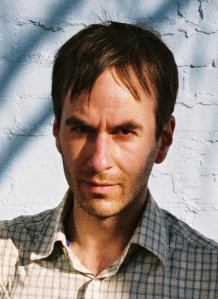 Hi, this is Daniel Garber at the Movies for culturalmining.com and CIUT 89.5 FM.
Hi, this is Daniel Garber at the Movies for culturalmining.com and CIUT 89.5 FM.
Photo by Jeff Harris.
Yes, it’s Oscar time again, albeit a few months late, and selected from a much smaller pool since most movie theatres have been closed for a year now, and distributors are sitting on their big-ticket blockbusters.
But hey, however you slice it, it’s still the Oscars. What are the biggest changes this year? Are the Oscars a tired warhorse that should be put out pasture? Or is it an always fresh and always surprising look at the past year’s best movies?
Well to answer some of these questions, to look at the nominations, and to give you a taste of what’s to come, I’m going to join today’s guest in a discussion about the Oscars. Jeff Harris is a Toronto-based photographer, former Photo editor at Maclean’s, and is continuing a twenty-year long art project of self portraits taken each day. You may also know him since he takes the photos that accompany my interviews at Hot Docs and TIFF. Most recently he completed a music video for Toronto musician Regina Gently released later this month.
I spoke with Jeff Harris on April 13th, 2021 via Zoom.
The Academy Awards will be broadcast on April 25th.
My predictions:
Best Picture: Nomadland ✓
Best Director: Chloe Zhao ✓
Best Actress: Frances McDormand ✓
Best Actor: Riz Ahmed Anthony Hopkins X
Best Supporting Actress: Youn Yuh-jung ✓
Best Supporting Actor: Daniel Kaluuya ✓
Best International Film: Quo Vadis, Aida? Another Round X
Implanted ideas. Films reviewed: Held, Kenny Scharf: When Worlds Collide, Moffie
Hi, this is Daniel Garber at the Movies for culturalmining.com and CIUT 89.5 FM.
This week I’m looking at three new movies — a doc, a war drama and a thriller horror — about ideas implanted into our minds. There’s an eighties artist digging up TV images from the sixties; a soldier in eighties South Africa with Cold War racism and homophobia drilled into his head; and a married couple forced to re-enact outdated sexual roles by the orders of a device… drilled into their skulls.
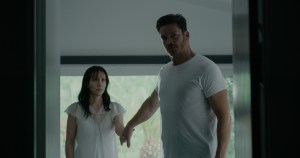 Held
Held
Dir: Travis Cluff, Chris Lofing
Emma and Henry (Jill Awbrey and Bart Johnson) are a married couple, both professionals. They plan to meet at a remote luxury resort in order to bring the spark back into their relationship. Eight years ago they had an amazing vacation in Monterey, just the two of them; but lately, they’ve been drifting apart. Emma arrives first, driven by a vaguely suspicious-looking guy named Joe (Rez Kempton). Why does he ask so many personal questions? She’s relieved to see the house is protected by a large wall. She checks out the digs — it’s a minimalist wonder, all glass and white walls, and incredibly safe from intruders. There are alarms and code systems everywhere, a modern kitchen, and a lovely orchard just outside. And Henry left her some flowers on the doorstep — red roses… how romantic!
When Henry arrives, they share a toast over glasses of whiskey. But then things get weird. They both start to feel dizzy — are  there roofies in their drinks? They wake up the next morning in a daze. Their cel phones are gone. Emma is dressed in an old-school negligee. Did someone do this to her in her sleep? And the roses? Henry says they weren’t from him. Their clothes have all disappeared, replaced by 6os-style dresses for her and suits for him, and large TV screens that play old-school songs urging them to dance a foxtrot. Dance?
there roofies in their drinks? They wake up the next morning in a daze. Their cel phones are gone. Emma is dressed in an old-school negligee. Did someone do this to her in her sleep? And the roses? Henry says they weren’t from him. Their clothes have all disappeared, replaced by 6os-style dresses for her and suits for him, and large TV screens that play old-school songs urging them to dance a foxtrot. Dance?
The doors are all locked, and a strange detached voice starts giving them orders. Obey us! If you follow our directions you will not be harmed! Mr Creepy Voice wants them to stick to traditional sexual roles — men open doors for women, who respond by thanking them. If they disobey, they get zapped by a high-power, hugely painful device that’s been implanted into their heads the night before. And now they’re expected to make love under a watchful eye. Who is this maniac and what’s his agenda? Is it Jordan Peterson? Or an incel? Why does he cling to outdated sexual norms? And will they ever escape from this bizarre house of horrors?
Held is a heart pounding , psychological thriller about a couple held hostage for no known reason. There’s a big revelation about two-thirds of the way through (no spoilers) which I predicted… but even so, it gripped me till the very end. It is quite violent and disturbing, so not for the faint of heart, but I found Held a super-twisted and scary movie, just the thing for late-night viewing.
 Kenny Scharf: When Worlds Collide
Kenny Scharf: When Worlds Collide
Wri/Dir:Max Basch, Malia Scharf
Kenny Scharf is born into post-war LA, the land of artificial smiles, perma-tans, non-stop TV and brightly coloured plastic. He grows up in a nuclear family amidst the prefab suburbs of the San Fernando valley. He likes art and design and has a steady hand that can draw a perfect line without a ruler. But Andy Warhol and New York City beckons and he ends up a student at SVA (the School of Visual Arts) beside Keith Haring with whom he eventually shares an apartment in Times Square. It’s the early 1980s, and together with the younger Jean-Michel Basquiat, the three start spreading their art all over the city: on subways, toasters, TV  sets, and crumbing tenement walls. Kenny can’t stop putting painting on everything he sees.
sets, and crumbing tenement walls. Kenny can’t stop putting painting on everything he sees.
Eventually people with money start to notice, and the East Village art scene explodes. Kenny Scharf’s work incorporates found art, day-glo colours, and cartoonish TV images of George Jetson, Barney Rubble and 1950s suburban housewives. These figures are vomited across canvas in a cosmic orgy of detailed mayhem, the work of spray paint and fine brush strokes. Grotesque smiles and googly-eyed faces adorn his prolific paintings and sculptures, like a Peewee’s Playhouse of fine art. The East  Village art scene spills over into the world of performance, music, fashion and nightclubs, blurring the lines. Kenny is doing it all. Next comes money and fame, one-man shows and installations,…until it finally crashes and burns. Many of the artists die in the AIDS epidemic, but Kenny survives, moving back to LA with his Brazilian wife and kids and continuing his work.
Village art scene spills over into the world of performance, music, fashion and nightclubs, blurring the lines. Kenny is doing it all. Next comes money and fame, one-man shows and installations,…until it finally crashes and burns. Many of the artists die in the AIDS epidemic, but Kenny survives, moving back to LA with his Brazilian wife and kids and continuing his work.
Kenny Scharf: When Worlds Collide (the title is from one of his massive paintings) is a documentary look at his life and art, from childhood to the present, presented using never-seen period footage, video, recordings and art. It’s an amazing story brought to life. To be honest, I’m always suspicious of docs on living artists — did they make this film just to raise his recognition and pump up the value of his work? Who knows? But life as an artist is never easy. This film is co-directed by another artist, Kenny’s own daughter Malia, which lets us look into his private life and thoughts, and his never-ending outflow of colour and plastic… while steering clear of any stories of sex, drugs and debauchery. It’s her dad… what do you want?
I liked this movie.
 Moffie
Moffie
Wri/Dir: Oliver Hermanus
It’s 1982 in Apartheid South Africa. All white boys and men are required to serve in the army for two years starting at age 16. Nick (Kai Luke Brümmer) is still wet behind the ears and doesn’t want to go. But his mother and boorish step-father send him off with a big celebration. His father slips him a porn mag to keep him company. But Playboy centrefolds are not his thing. The train to the camp is loud and rough, filled with oafs drinking till they puke, picking fights and shouting racist abuse at any African they pass. Nick makes one friend on the way, Michael (Matthew Vey), an anglo and a nice guy to boot. At the base, they are spat on, kicked, punched and made to repeat inane 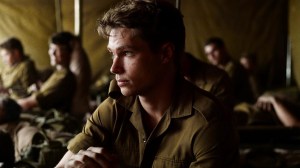 slogans by an especially sadistic sergeant. All hatred is aimed toward the three enemies of the state — Africans, communists, and homosexuals. And heaven help anyone caught supporting any of them, or worse being one of them. The sleeping quarters are filled with testosterone-fuelled idiots, spouting racist nonsense but exuding a constant masculine sexuality that clouds Nick’s thoughts.
slogans by an especially sadistic sergeant. All hatred is aimed toward the three enemies of the state — Africans, communists, and homosexuals. And heaven help anyone caught supporting any of them, or worse being one of them. The sleeping quarters are filled with testosterone-fuelled idiots, spouting racist nonsense but exuding a constant masculine sexuality that clouds Nick’s thoughts.
But war is war (there’s a longstanding border conflict with neighbouring Angola) and they’re expected to fight. When Nick finds himself sharing a sleeping bag in a foxhole with a friendly soldier named Stassen (Ryan de Villiers) he’s forced to reassess his sense of desire and sexuality. But will he survive this two year ordeal?
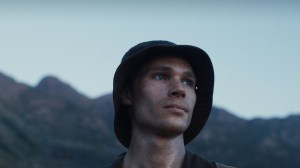 Moffie (the title is an Afrikaans anti-gay slur), is a realistic internal look at the unrelenting racism and paranoia drilled into the psyche of white South Africans’ during Apartheid. (Unspoken, but implied, is the the violence that this visited upon the non-white South African majority on a daily basis) It’s also an intensely moving story, full of lust and longing, regret and horror. Dialogue alternates between Afrikaans and English. It has stunning cinematograpy, and a great soundtrack. The acting is fantastic, with a largely unknown cast, many on screen for the first time. Moffie is a powerful war film.
Moffie (the title is an Afrikaans anti-gay slur), is a realistic internal look at the unrelenting racism and paranoia drilled into the psyche of white South Africans’ during Apartheid. (Unspoken, but implied, is the the violence that this visited upon the non-white South African majority on a daily basis) It’s also an intensely moving story, full of lust and longing, regret and horror. Dialogue alternates between Afrikaans and English. It has stunning cinematograpy, and a great soundtrack. The acting is fantastic, with a largely unknown cast, many on screen for the first time. Moffie is a powerful war film.
I recommend this movie.
Moffie opens today on VOD on Apple TV and in the summer on IFC Films Unlimited; Held also starts today on VOD on AppleTV, iTunes and other platforms; and Kenny Scharf: When Worlds Collide will open next Thursday.
This is Daniel Garber at the Movies, each Friday morning, on CIUT 89.5 FM and on my website, culturalmining.com.
Daniel Garber talks with Kelly McCormack about her new film Sugar Daddy
 Hi, this is Daniel Garber at the Movies for culturalmining.com and CIUT 89.5 FM.
Hi, this is Daniel Garber at the Movies for culturalmining.com and CIUT 89.5 FM.
Darren is a small town girl with big city ambitions. She left her divorced mom and adoring sister behind for a music career in Toronto. She found a gaggle of artists to hang with and an apartment-mate who has a crush on her. She earns her rent at a catering job. But when, in a Dickensian plot turn, she’s caught taking home leftover sandwiches — she finds herself fired, broke, starving, and nearly homeless. What to do? She signs onto a service where she’s paid to go on public dates with much older, much richer men. This solves her money deficit… but what about her career and sense of self worth? Will Darren’s new arrangements lead to success? Or is she doomed to failure as an artist on the payroll of a “sugar daddy”?
Sugar Daddy is a coming-of-age feature about a young woman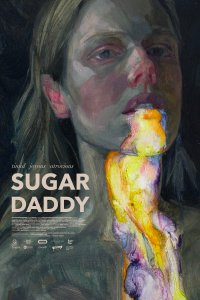 discovering her self worth, and what her youth, body, and talent will fetch on the open market. The film is written, produced by and starring Toronto-based writer, musician, actor, and artist Kelly McCormack. Kelly has made her mark on stage and screen — you’ve probably seen her as Betty Anne on LetterKenny as well as parts on Ginny and Georgia on Netflix and the upcoming A League of their Own on Amazon.
discovering her self worth, and what her youth, body, and talent will fetch on the open market. The film is written, produced by and starring Toronto-based writer, musician, actor, and artist Kelly McCormack. Kelly has made her mark on stage and screen — you’ve probably seen her as Betty Anne on LetterKenny as well as parts on Ginny and Georgia on Netflix and the upcoming A League of their Own on Amazon.
I spoke with Kelly via Zoom in Toronto. I previously interviewed her along with Alec Toller in 2014 about her off-beat film Play: the Movie.
Sugar Daddy premiered at the Canadian Film Festival on April 1st, and opens on VOD, beginning April 6th, 2021.
Women around the world. Films reviewed: Nina Wu, White Elephant, French Exit
Hi, this is Daniel Garber at the Movies for culturalmining.com and CIUT 89.5 FM.
Spring is here and so is Toronto’s film festival season, even with all the theatres still closed. First up is the Canadian Film Fest which is on now.
This week I’m looking at three new dramas about women around the world. There’s an actress haunted by an audition in Taipei; a high school girl crushing on a white guy in Scarborough; and an insolvent socialite retiring in Paris.
Nina Wu (Wu Kexi) is an aspiring actress in Taiwan. Originally part of a rural theatre company, she moved to Taipei to make it big, but so far, six years on her big break has yet to show itself, So when her agent offers a possible role in a festival-type feature looking for an unknown actress to play a complex character in a psychological drama, she jumps at the chance. But there’s always a catch: the part calls for full frontal nudity and explicit sex. That’s not all — there’s a gruelling, and highly competitive hiring process she has to past through first. Luckily she lands the lead role. Unluckily, the director, in order to get a “real” performance out of her, treats her like hell on set and off. He works her into a frenzy, slaps her face, insults her and puts her very life in danger. She understands what an actor has to go through to deliver a spectacular performance. But that’s not all. A dark, hidden 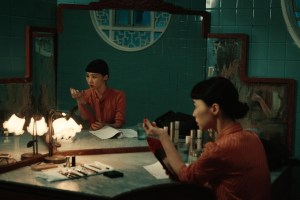 secret from the recent past, still haunts her, and is gradually pushing her to the edge. Someone is stalking her. She has disconnected memories of walking down endless narrow corridors in a red gown, passing identically dressed women at every corner. What is happening? What does it all mean? And can she survive?
secret from the recent past, still haunts her, and is gradually pushing her to the edge. Someone is stalking her. She has disconnected memories of walking down endless narrow corridors in a red gown, passing identically dressed women at every corner. What is happening? What does it all mean? And can she survive?
Nina Wu is an exquisitely beautiful mystery-thriller about the life of an actress suffering from PTSD. It’s about her, her dreams and hallucinations, as well as the movie in the movie.  So at any given moment she could be acting her role, having a nightmare, or experiencing a hallucination — and you don’t always know which one it is. Nina Wu is a collaboration between the director, Midi Z, originally from the Shan State in Myanmar, and Wu Kexi a stunning and emotionally powerful Taiwanese actress, based on her own experiences. With haunting music, striking costumes and set, beautiful cinematography and a fascinating story, Nina Wu shows the dark side of the movie industry coated with a vibrant and flashy gloss.
So at any given moment she could be acting her role, having a nightmare, or experiencing a hallucination — and you don’t always know which one it is. Nina Wu is a collaboration between the director, Midi Z, originally from the Shan State in Myanmar, and Wu Kexi a stunning and emotionally powerful Taiwanese actress, based on her own experiences. With haunting music, striking costumes and set, beautiful cinematography and a fascinating story, Nina Wu shows the dark side of the movie industry coated with a vibrant and flashy gloss.
Its the mid-nineties at a Scarborough high school. Puuja (Zaarin Bushra) is a
16-year-old Toronto-born girl who doesn’t quite fit in. She’s too Canadian for her Indian-born friends Preet and Amit (Gurleen Singh, Dulmika Kevin Hapuarachchi), too Indian for Indo-Caribbeans, and too brown for the white kids. Her main pastime is going to movies and hanging at Tim Horton’s. But when a random encounter at a theatre with a white guy she thinks is cute, things start to change. Trevor (Jesse Nasmith) doesn’t go to her school, but he’s from the neighbourhood, and hangs with his friends nearby. He seems to like her, at least as a friend. Pujaa starts lightening her hair, changing her style and wearing green-tinted contact lenses to fit in. But can a brown girl date a white guy in Scarborough? Or is their Romeo and Juliet friendship bound to fail?
White Elephant is a look at the racial division, rivalry and prejudice among kids in a multi-cultural community, as seen through the eyes of Puuja. It’s a shorter than average-film, just one hour long, but it covers a lot of ground.
There are some strange details. I’ve never heard of Canadians putting their hands on their hearts during the national anthem — that’s an Americanism. And why would Pooja’s Calcutta-born Dad scolds her for not speaking Hindi. (Wouldn’t he speak Bengali?) But these are minor quibbles. Acting was good all around, the costume design was fun, and the film gave a voice to groups rarely seen on the screen.
 French Exit
French Exit
Dir: Azazel Jacobs
(Based on the novel by Patrick DeWitt)
Frances (Michelle Pfeiffer) is a Park Avenue socialite known for her attitude. She can cut down the fiercest critic with a withering glance, and if snubbed by a waiter she’s apt to set her table on fire. She’s not one to be underestimated. When her husband died she withdrew her nondescript son Malcolm (Lucas Hedges) from prep school and brought him home. Eight years later, the coffers run dry, and she’s insolvent. So she sells her jewelry and paintings and pulls a “French exit” —an unannounced getaway — on an ocean liner with a satchel full of Euros. She’s accompanied by Malcolm and their cat. Malcolm is sad because his girlfriend Susan (Imogen Poots) refuses to follow him to Paris. (Oh to be young-ish and in love-ish again, says Frances.) They set up house in her best friend Joan’s pied à terre and start to enjoy life in Paris. And they soon have a motley crew of friends  dropping by: Madame Reynard, a lonely fan, Madeleine, a psychic, Julius, a private detective, and others. Frances is spreading the wealth, handing off wads of cash to everyone she meets. It’s almost as if she’s trying to use it all up before she says goodbye. But first she must find her runaway cat, whom she believes is a reincarnation of her late husband. Can Malcolm adjust to life in Paris? Will he ever see Susan again? What is the real reason Frances came to Paris? And what will happen when her money runs out?
dropping by: Madame Reynard, a lonely fan, Madeleine, a psychic, Julius, a private detective, and others. Frances is spreading the wealth, handing off wads of cash to everyone she meets. It’s almost as if she’s trying to use it all up before she says goodbye. But first she must find her runaway cat, whom she believes is a reincarnation of her late husband. Can Malcolm adjust to life in Paris? Will he ever see Susan again? What is the real reason Frances came to Paris? And what will happen when her money runs out?
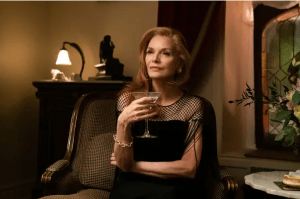 French Exit is a leisurely-paced, whimsical story, based on a novel. Lucas Hedges as Malcolm is so low key and introverted, you can barely notice him; while Michelle Pfeiffer Frances is a fantastical creation. It feels like a modern-day version of Auntie Mame. It’s written by Canadian novelist Patrick DeWitt based on his own recent book, which gives it lots of room to develop characters and supply funny lines. It may be light and inconsequential, but it’s a pleasure to watch.
French Exit is a leisurely-paced, whimsical story, based on a novel. Lucas Hedges as Malcolm is so low key and introverted, you can barely notice him; while Michelle Pfeiffer Frances is a fantastical creation. It feels like a modern-day version of Auntie Mame. It’s written by Canadian novelist Patrick DeWitt based on his own recent book, which gives it lots of room to develop characters and supply funny lines. It may be light and inconsequential, but it’s a pleasure to watch.
French Exit and Nina Wu both open today; and White Elephant is playing at the Canadian Film Festival.
This is Daniel Garber at the Movies, each Friday morning, on CIUT 89.5 FM and on my website, culturalmining.com

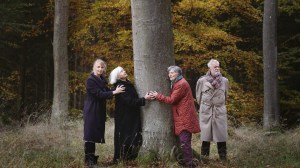


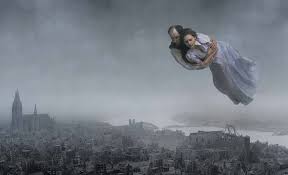

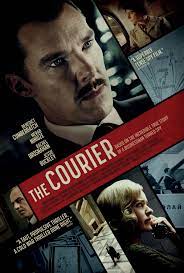


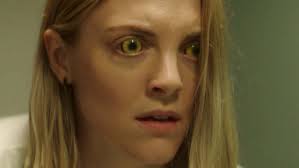
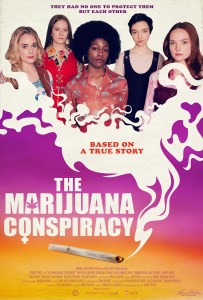


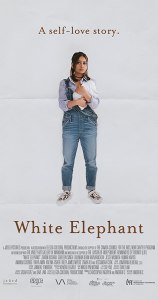
2 comments